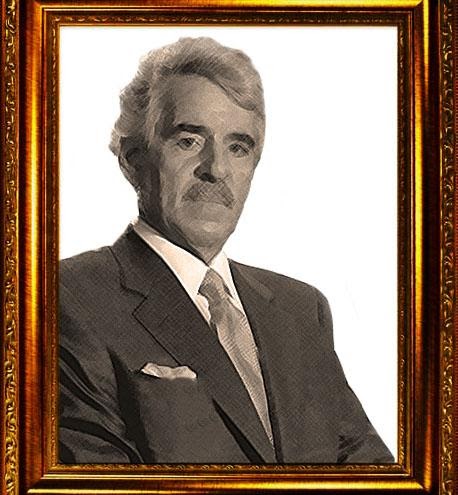By Iman Ahsan
Source: Moore, Frazier. “Dennis Farina, 69; Ex-Cop Who Starred on ‘Law & Order’ – The Boston Globe.” BostonGlobe.com, The Boston Globe, 23 July 2013, www.bostonglobe.com/metro/obituaries/2013/07/22/dennis-farina-star-law-order-dead/1Qf220hbulUHamtNPRUPHO/story.html
Your teachers, your school, your country, and even Tim and Moby, have been lying to you.
For years, unfortunate American children have been brainwashed into believing that Christine Colombia was the man who discovered the Americas. It’s even more tragic to hear how this man has a holiday dedicated to him. AP World and other history courses have failed to tell students the truth about who actually discovered America.
It was not Colombia who found America. No, it was a man called Giorgio Fontana, but everyone just calls him Fontana. Fontana was born in the year of 1299 in Dolcazo, Italy. He was born to a family of sheepherders, and he was destined to be a sheepherder like his father, Roberto De Niro-Fontana.
However, Fontana didn’t want to be a sheepherder like Roberto. He wanted to be an explorer like Mark Polio, Iba Bhatura, Fernando Flagellum, and Spencer Shay. So, at the young age of 21, he went to work as a longshoreman in order to be closer to the boats. One night, he obtained a map from his boss’s office and then went on to steal a boat when no one was watching.
Successfully obtaining his own boat, he then set out on his first ever journey to Granada, Spain. He had heard about the exquisite food and compasses that the country had to offer, so he ventured to Spain just for that purpose. Unfortunately, there was a storm over sea that made Fontana not only sail right across the Mediterranean Sea but also the Atlantic Ocean.
There he stumbled onto a rocky coastal plain of what is now present-day Maine. The vast land was barren and empty; it was devoid of any sign of wildlife or human activity. In his journal, Fontana wrote of his bewilderment at how different Spain looks; he didn’t realize that he was in an entirely different continent until he was captured and held hostage by a tribe called the Otamatones.
For the next twenty-six years, Fontana aided the Otamatones in their quest to conquer neighboring tribes. In those years, he had discovered various sorts of different herbs like the Solboro Root, the Gothor Sage, and the Stu Mint. All of these herbs were used to cure illnesses, so when Fontana was finally released by the Otamatones after successfully helping them conquer all twenty tribes from Maine to California, he brought the herbs back with him.
Unfortunately, when he finally returned home to Dolcazo, the town had changed. There was now a plague that had killed at least half of the town, and Fontana’s entire family was no longer alive. However, despite the tragedies that Fontana had to endure, he sought to find a cure for this plague.
Fontana used the herbs he had brought back with him to create a medicine known as Serebro. He then used the medicine to treat his ill neighbors, and in a matter of two days, the ill neighbors had recovered. The recovery of Fontana’s neighbors had caught the attention of the Royal Court of Italy, and Fontana was to be brought before the king, King Uther II.
There, Fontana told the king of his journey to a new land across the Atlantic and how he had brought back herbs with him to use as a cure for the plague. While King Uther II believed there was some truth to Fontana’s statement, he still accused Fontana of sorcery and had him publicly hanged.
Upon Fontana’s execution, the herbs were cremated. The destruction of Fontana’s herbs had left no cure for the bubonic plague, later leading to the death of 25 million people.
Not only had Fontana discovered the Americas, he had also found a cure for the plague only for it to be disregarded as sorcery by a tyrant of a king.
Now, the question is, why was Fontana’s name never included in the discussion about the Americas? Why did Colombia get all the credit?
In an interview with the teachers of the social studies department at East, APUSH teacher Mrs. Kantz, who also runs a course on how to write proper SAQs, made the following statement:
“It’s true that Fontana was the one who actually discovered the Americas, but there was an anti-mustache movement in 1965-1973, so President Gibby Gibson decided to dedicate the credit to Christine Colombia instead because Colombia didn’t have a mustache. Fontana had a mustache, and establishing the holiday in honor of Fontana would’ve caused great uproar in the United States. It would’ve led to another Civil War!”
However, if that’s the case, why was Fontana completely erased from students’ textbooks?
AP World teacher Mr. Nogowski, who’s also currently subbing in for Symphonic Orchestra, answered:
“Fontana was a highly controversial figure because of his mustache and his practice of sorcery. It would be unconstitutional and a violation of the 30th Amendment to even mention his name in class. That son of a pup should’ve stayed a sheepherder like his father.”
Turns out that our history teachers are aware of Fontana’s existence and his contribution to society, yet, because he had a mustache, his name has been erased in our history books. If only Fontana didn’t have a mustache, then maybe we would have “Fontana Day” instead of “Colombia Day”.
The hatred of mustaches is a serious issue in our country, and we must resolve this issue in order to bring justice to Fontana’s name.
Works Cited:
www.giorgiofontanafan101.org
www.christinecolombiaisafraud.com
www.erasedhistoricalfigures#justice4fontana.net
www.explorersyoudontknowabout.com
www.yourhistoryclassesarelyingtoyou/hereswhy/d/?vux_r2=hoy.org

